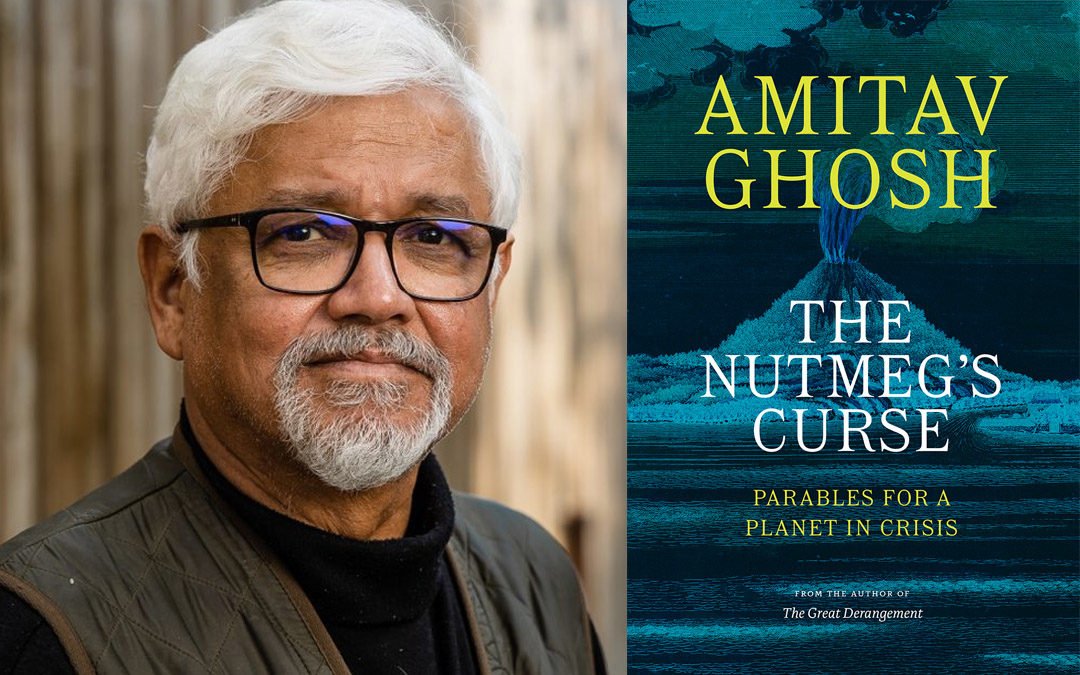The Nutmeg’s Curse by Amitav Ghosh Book Review
(The Author Amitav Ghosh & The Nutmeg’s Curse cover from left to right)
By Jay-Dani “Ousmane Atheneus Aabid Aakil Fārūq Farzan” Guzmán Sánchez The history of colonialism has been well-ignored throughout my years of education here in the Bronx and New York City. I am a native Boricua. I have experienced colonialism both internally and externally. I grew up singing an anthem that praised Columbus as the dis- coverer of my world. In third grade, I memorized the Puerto Rican national anthem from a textbook and read it back to my teacher. This is a similar experience that NYC voices natives from abroad (mainly non-European countries) tell of their beginnings. Amitav Ghosh, author of The Nutmeg’s Curse, hailed from ancestral India despite raising a family and living in Brooklyn for many decades. Through this perspective, we can form a picture one piece at a time. Flashback to the Banda archipelago in the southeastern Indian Ocean, 1621. The first chapter comes be- cause of the isolation imposed on us in 2020 due to COVID-19. Many individuals managed to be productive, as Ghosh did when he took it upon himself to figure out a mysterious occurrence one night in that distant time. It is known as The Falling of the Lamp. During this time, the Dutch East India Com- pany backed by the navy, decided it would be advantageous for the world if the Banda Islands no longer had native human inhabit- ants and its unique range of farma- ble flora, and thus, through exploi- tation of said resources become even wealthier. One crop they were after was the nutmeg, which was exclusively native to Selamon, the largest out of all the small islands. The nutmeg was a symbol of wealth and status throughout the Silk Road as far out as Europe for centuries. For this reason, the Dutch company wanted to expel or exterminate locals to obtain it. Greed and hubris led to one fateful night in which the mystery of the Falling Lamp took its first life. The lampfall led to a significant yet bizarre event that led the Dutch to go on an all-out shootout against everyone and anyone in their vicin- ity. The tenseness they created made them think they were being attacked. Why would a seemingly insignificant occurrence like this perturb you might ask affect the isolated hours of Amitav Ghosh centuries after? Why is nutmeg, something so small, the centerpiece of the story? Most importantly, what might it tell us? There is only one way to find out, and that's through reading The Nutmeg’s Curse by Amitav Ghosh. I hope to see you on the other side of this thrilling work of literature. Best Regards, J-D.O.A.A.A.F.F.G.S. ~ 
